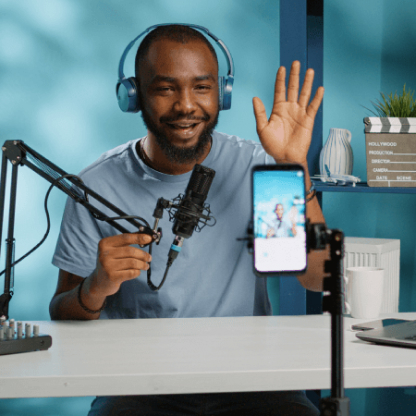The initial phone screen is more than a formality; it's the strategic first line of defense in talent acquisition. A well-structured 15-30 minute call can save hundreds of hours, filter out misaligned candidates, and pinpoint high-potential individuals before they ever meet a hiring manager. However, asking generic questions often leads to generic hires. The key is to move beyond the resume to uncover true motivation, cultural alignment, and genuine interest. The effectiveness of this initial filter hinges significantly on your approach, as mastering the art of asking better questions can completely transform the conversation from a simple script to a powerful diagnostic tool.
This guide provides a curated list of essential phone screening questions for recruiters designed to extract meaningful insights quickly and efficiently. We'll break down the 'why' behind each question, offer practical tips for evaluating responses, and show you how to turn a simple call into your most powerful filter. By implementing these questions, you will streamline your hiring process, improve the quality of candidates you advance, and ensure you're investing time in only the most promising talent. Get ready to refine your first call and make every minute count.
1. Walk me through your resume
This classic, open-ended question is far more than a simple request for a summary; it's an invitation for the candidate to provide the "director's commentary" on their career. Instead of just hearing what they did, you learn why they did it. This initial prompt sets the stage for the entire interview, revealing a candidate's communication style, self-awareness, and their ability to construct a compelling professional narrative. It's one of the most fundamental phone screening questions for recruiters because it immediately frames the candidate's experience in their own words.

A strong answer won’t be a robotic recitation of job titles and dates. Instead, it will connect the dots, explaining the logic behind career changes and framing past roles as stepping stones leading directly to this opportunity. This is your first and best chance to gauge their storytelling ability and understand their career trajectory.
How to Implement This Question Effectively
To get the most out of this prompt, structure it with clear expectations.
- Set a Time Limit: Begin by saying, "Could you take about 3 to 5 minutes to walk me through your resume, highlighting the key experiences that led you to apply for this role?" This prevents rambling and encourages the candidate to be concise.
- Listen Actively: Pay attention to more than just the facts. Note their tone and level of enthusiasm when discussing different roles. Do they light up when talking about a specific project? Do they gloss over a particular job transition?
- Focus on the "Why": The most crucial insights come from understanding their motivations. Listen for the reasons behind their job changes. Was it for growth, a new challenge, a better cultural fit, or were they fleeing a bad situation?
Pro Tip: Use the candidate's resume walk-through as a roadmap for the rest of your conversation. Note specific projects, achievements, or transitions you want to circle back to for a deeper dive later in the call. This shows you're engaged and allows you to tailor your subsequent questions.
2. Why are you looking for a new opportunity?
This question cuts directly to a candidate's core motivations and is a critical tool in any recruiter's arsenal. While it may seem straightforward, the answer reveals a wealth of information about a candidate's career aspirations, professional satisfaction, and what they truly value in a workplace. It helps you understand if their "pull" factors toward your company are stronger than their "push" factors away from their current one. This is one of the most insightful phone screening questions for recruiters as it uncovers alignment between the candidate's needs and what your opportunity provides.

A strong candidate will provide a thoughtful, forward-looking answer that focuses on growth, new challenges, or a desire for a different culture or impact. For instance, a candidate applying to a remote-first company might emphasize a search for better work-life balance, while someone targeting a consulting firm might express a desire for more intellectual challenges. Vague answers or excessive negativity about a current employer can be significant red flags. Learn more about optimizing your initial screening process on asyncinterview.io.
How to Implement This Question Effectively
Your goal is to understand their reasoning and see if it aligns with the reality of the role you're offering.
- Listen for Specifics: A generic answer like "I'm looking for growth" is a starting point, not an endpoint. Gently probe further by asking, "That's great, what does growth look like to you in your next role?"
- Gauge Professionalism: Pay close attention to how they speak about their current or former employers. A candidate who is respectful and focuses on their own needs, rather than blaming others, demonstrates maturity and professionalism.
- Connect to Your Role: Actively map their motivations to your job description and company culture. If they say they are seeking a high-performance environment, and your company (like Netflix) prides itself on that, you have a strong potential match.
Pro Tip: Frame this question as a way to ensure mutual fit. You can say, "To make sure this is a great move for you, could you share what you're hoping to find in your next role that you aren't getting in your current one?" This collaborative framing encourages a more honest and detailed response.
3. What interests you about this role/company?
This question moves beyond a candidate's history to assess their future orientation and genuine motivation. It separates the applicants who are mass-applying from those who have thoughtfully considered this specific opportunity. How a candidate answers reveals their level of preparation, what aspects of a job they truly value, and how well they understand your company's mission and culture. As one of the most revealing phone screening questions for recruiters, it gauges alignment on a much deeper level than a resume ever could.

A top-tier response will go far beyond generic praise like "it seems like a great company." Instead, candidates will cite specific details, such as a recent product launch, a company value that resonates with them, or how the role’s responsibilities directly align with their long-term career aspirations. This demonstrates not just interest, but informed enthusiasm. For instance, a candidate applying to Patagonia might mention their personal connection to environmental conservation, while someone applying to McKinsey would focus on their passion for complex problem-solving.
How to Implement This Question Effectively
To extract the most meaningful insights, you need to probe for specificity and authenticity.
- Listen for Concrete Details: Pay close attention to whether the candidate mentions specific company initiatives, values, or recent news. A vague answer is a red flag indicating a lack of research.
- Connect to Their Goals: Note how they link the role's duties or the company's mission to their personal career goals. A strong candidate sees this position as a logical and exciting next step, not just another job.
- Assess Authenticity: Is their enthusiasm genuine or does it sound like a rehearsed script they found online? Authentic interest often comes with follow-up questions and a natural, unforced tone.
Pro Tip: When a candidate mentions a specific area of interest, use it as a springboard. If they say they’re excited about your company's commitment to innovation, you can respond with, "That's great to hear. One of our new projects in that area is X. How do you see your skills contributing to something like that?" This creates a two-way dialogue and tests their ability to think on their feet.
4. What are your salary expectations?
This direct question is one of the most practical and crucial phone screening questions for recruiters, as it tackles compensation head-on. Asking about salary expectations early ensures alignment between the candidate's financial requirements and the role's budget, preventing wasted time for both parties. It’s a transparent approach that establishes realistic expectations and avoids eleventh-hour surprises or disappointments later in the hiring process.

While it might feel uncomfortable, addressing compensation is a sign of a well-structured process. A candidate’s answer reveals their understanding of the market, their own value, and their priorities. For example, a startup candidate might show flexibility on cash in favor of equity, while a government contractor must align with rigid, predetermined pay scales. This question helps you gauge if there's a fundamental mismatch before investing further resources.
How to Implement This Question Effectively
Approach this topic with transparency and respect to get the most accurate information.
- Provide a Range First: Where legally permissible, start by sharing the approved salary range for the role. This frames the conversation productively and demonstrates good faith. You might say, "To ensure we're aligned, the budgeted salary range for this position is between $X and $Y. Does that fall within your expectations?"
- Discuss Total Compensation: If a candidate’s base salary expectation is high, pivot to the total package. Frame the question like this: "Could you share your expectations for total compensation, including base salary, potential bonus, and any other key benefits?" This opens the door to discuss elements like equity, benefits, and paid time off.
- Know Local Laws: Be aware of salary history bans in your jurisdiction. The focus should always be on the candidate's expectations for the new role, not their past earnings.
Pro Tip: If a candidate is hesitant to name a number, ask them what factors are most important to them in a compensation package. Their answer will reveal whether they prioritize a high base salary, performance bonuses, robust benefits, or work-life balance, giving you valuable leverage for crafting a potential offer.
5. Describe your ideal work environment
This question moves beyond skills and experience to explore the critical element of cultural fit. A candidate might have the perfect qualifications on paper, but if they thrive in a slow, methodical environment and you're a fast-paced startup, the mismatch could lead to frustration and early turnover. Understanding what makes a candidate feel productive and engaged is a core part of a recruiter's due diligence, making this one of the most insightful phone screening questions for recruiters you can ask.
A strong answer will be specific and self-aware, touching on management style, team collaboration, pace, and autonomy. For example, a candidate might say they prefer a remote-first setting with clear goals and weekly check-ins, but otherwise appreciate the autonomy to manage their own schedule. This tells you far more about their potential success than just reviewing their job history.
How to Implement This Question Effectively
To get a genuine and useful response, frame the question to encourage honesty rather than a "right" answer.
- Ask for Past Examples: Instead of a purely hypothetical question, ask, "Can you tell me about a work environment where you felt you were most successful and why?" This grounds their answer in real-world experience.
- Probe for Deal-Breakers: Gently probe for non-negotiables. You might ask, "What are one or two things in a work environment that you know are deal-breakers for you?" This helps identify potential red flags early.
- Connect to Your Reality: Be transparent. After they describe their ideal, connect it to your company's actual environment. For example, "That's helpful to know. We are very collaborative here, with frequent team brainstorming sessions, which sounds like it aligns well with what you're looking for."
Pro Tip: Listen for keywords related to structure, autonomy, collaboration, and feedback. If a candidate emphasizes needing "clear direction and established processes," they may struggle in a role that requires navigating ambiguity. Conversely, someone who craves "creative freedom and minimal oversight" might feel stifled in a highly structured corporate setting.
6. What is your biggest professional strength?
This question moves beyond past experiences to focus on a candidate's core competency and self-perception. It’s a direct inquiry into what they believe makes them most valuable in a professional context. Their answer reveals not only their confidence and self-awareness but also whether their perceived strengths align with the specific needs of the role and the company culture. As one of the most insightful phone screening questions for recruiters, it helps you quickly gauge if a candidate understands what it takes to succeed in the position they're applying for.
A top-tier candidate will provide a strength that is directly relevant to the job description and back it up with a concise, compelling example. For instance, a sales candidate might highlight their ability to build rapport quickly, while a software engineer might focus on their talent for debugging complex code. The specificity of their answer is a strong indicator of how well they have prepared for the interview and considered their fit for the role.
How to Implement This Question Effectively
To transform this from a generic question into a powerful evaluation tool, you need to probe for evidence and context.
- Demand Evidence: After they state their strength, immediately follow up with, "Can you give me a specific example of a time you used that strength to overcome a challenge or achieve a significant result?" This pushes them beyond a canned answer.
- Connect to the Role: Explicitly tie their answer back to the job. For example, "That's an interesting strength. How do you see that skill helping you succeed specifically in this role with our team?"
- Listen for Authenticity: Pay close attention to their delivery. A genuine strength is usually described with ease and confidence, whereas a rehearsed or fabricated answer can sound hesitant or overly polished. Note their tone and conviction.
Pro Tip: Don't just accept the first answer. Use their stated strength as a pivot point for follow-up behavioral questions. If they claim "problem-solving," you can later ask, "Tell me about the most complex problem you've had to solve." This tests the consistency and depth of their claim.
7. Do you have any questions about the role or company?
This question, typically asked at the end of the call, flips the script and turns the candidate into the interviewer. It’s far more than a polite formality; it's a critical diagnostic tool. The quality, depth, and nature of a candidate's questions reveal their level of preparation, genuine interest, and what they truly value in a new opportunity. This is one of the most insightful phone screening questions for recruiters because it shows you what's on the candidate's mind, moving beyond their prepared answers.
A disengaged candidate might say, "No, you've covered everything," or ask basic, easily-researched questions about salary or vacation days. In contrast, a highly invested candidate will have thoughtful, specific inquiries prepared. Their questions demonstrate that they've done their homework and are seriously evaluating whether your company is the right long-term fit for their ambitions, not just another job application.
How to Implement This Question Effectively
To transform this from a closing pleasantry into a powerful evaluation tool, you must actively listen and categorize the intent behind their questions.
- Listen for Specificity: Note whether questions are generic ("What's the company culture like?") or specific ("I read that the company values innovation; can you give me an example of how a recent project team was encouraged to experiment?"). Specificity shows genuine research and critical thinking.
- Assess Alignment: Do their questions align with the role's seniority and responsibilities? An entry-level candidate asking about the company's five-year market strategy might be ambitious, while a senior leader focusing only on team social events could be a red flag.
- Be Prepared to Answer: Your ability to provide transparent and thoughtful answers is crucial. This interaction heavily influences the candidate's perception of your company and can significantly improve the overall candidate experience.
Pro Tip: Categorize the types of questions you hear. Are they focused on growth (e.g., "What does the career path for this role look like?"), challenges (e.g., "What are the biggest obstacles the team is currently facing?"), or strategy (e.g., "How does this role contribute to the company's Q3 objectives?"). This reveals their primary motivators.
8. When would you be available to start?
While it may seem like a simple logistical question, asking about a start date is a critical step in aligning candidate expectations with business needs. This question moves the conversation from the hypothetical to the practical, helping you understand any potential timing conflicts or constraints early on. It's one of the most straightforward phone screening questions for recruiters, but it provides vital information for planning the next stages of the hiring process and managing internal timelines.
A candidate's answer reveals their current employment status, professional obligations, and level of immediate interest. For roles with urgent needs, such as filling a backfill or supporting a new project launch, this question can quickly filter for candidates who can meet your timeline.
How to Implement This Question Effectively
To get a clear picture of the candidate's availability, frame the question to invite a detailed, transparent response.
- Be Direct and Clear: Ask, "If we were to extend an offer this week, what would your ideal start date be?" This provides a tangible scenario for the candidate to consider. For roles with fixed start dates, like for consulting projects or seasonal retail positions, state the required start date upfront and ask if that timeline is feasible for them.
- Probe for Commitments: Follow up by asking about any pre-planned vacations or other obligations that might impact their first few weeks or months. This avoids surprises after they’ve been onboarded.
- Respect Professionalism: A candidate who needs to provide a standard two-week or four-week notice to their current employer is demonstrating professionalism and respect, which is a positive sign. Be wary of candidates who are overly eager to leave their current role without serving a proper notice period.
Pro Tip: Use the candidate's answer to gauge their genuine interest. A candidate who has thought about their transition timeline is likely more serious about the opportunity. You can then use this information to map out your entire hiring process checklist and ensure all stakeholders are aligned on the potential start date.
Phone Screening Questions Comparison Matrix
| Question | Implementation Complexity 🔄 | Resource Requirements ⚡ | Expected Outcomes 📊 | Ideal Use Cases 💡 | Key Advantages ⭐ |
|---|---|---|---|---|---|
| Walk me through your resume | Medium 🔄 | Low ⚡ | Comprehensive candidate background, storytelling | Icebreaker, assessing communication and career progression | Reveals communication style, identifies gaps naturally |
| Why are you looking for a new opportunity? | Low 🔄 | Low ⚡ | Insight into candidate motivation and cultural fit | Evaluating alignment with company values, retention prediction | Helps predict retention, identifies priorities early |
| What interests you about this role/company? | Medium 🔄 | Low ⚡ | Measures candidate research and genuine interest | Screening passion, evaluating cultural and role alignment | Filters unprepared candidates, gauges long-term fit |
| What are your salary expectations? | Low 🔄 | Low ⚡ | Aligns budget and compensation expectations | Early negotiation and budget alignment | Saves time, demonstrates transparency |
| Describe your ideal work environment | Medium 🔄 | Medium ⚡ | Cultural fit and work style preferences | Assessing environment match, onboarding customization | Predicts job satisfaction, reveals adaptability |
| What is your biggest professional strength? | Low 🔄 | Low ⚡ | Identifies key competencies and candidate confidence | Highlighting unique skills relevant to role | Shows self-awareness, provides behavioral question leads |
| Do you have any questions about the role or company? | Low 🔄 | Low ⚡ | Reveals candidate engagement and priorities | Assessing candidate preparation and genuine interest | Identifies engaged candidates, builds rapport |
| When would you be available to start? | Low 🔄 | Low ⚡ | Timeline alignment and scheduling clarity | Planning hiring timeline and managing expectations | Ensures alignment, demonstrates professionalism |
Transforming Your Screening Process into a Strategic Advantage
Mastering the foundational phone screening questions for recruiters is the critical first step toward building a more strategic, efficient, and ultimately more effective hiring process. The questions detailed throughout this guide, from "Walk me through your resume" to "What are your salary expectations?", are not merely items on a checklist. They are powerful conversational tools designed to unlock crucial insights that a static resume can never reveal.
By moving beyond surface-level inquiries, you can uncover the intricate details of a candidate's genuine motivations, validate their core competencies, and, most importantly, assess their potential cultural alignment with your organization. The true goal of a phone screen isn't to interrogate but to initiate a thoughtful, two-way dialogue. This approach empowers both you and the candidate to make an informed decision about whether a mutual fit exists, saving everyone valuable time and resources down the line.
Key Takeaways for Elevating Your Phone Screens
To truly transform your process, focus on these core principles:
- Consistency is Crucial: Employing a structured set of questions for every candidate in a specific role is non-negotiable. This ensures a fair and equitable evaluation process, allowing you to compare candidates on a level playing field and mitigate unconscious bias.
- Listen More Than You Talk: The most revealing answers often come from what a candidate says between the lines. Pay close attention to their tone, the examples they choose, and the questions they ask you. These elements provide a richer picture of their personality and professional priorities.
- Contextualize Your Questions: A generic question yields a generic answer. Always frame your inquiries within the context of the specific role and your company's unique challenges and goals. This demonstrates preparedness and encourages more tailored, insightful responses.
Actionable Next Steps to Implement Today
The journey from a good recruiter to a great one is built on continuous improvement. To put these concepts into practice, start by auditing your current phone screening script. Are your questions designed to simply verify resume points, or do they actively probe for motivation, problem-solving skills, and self-awareness?
Refine your list to incorporate the strategic angles discussed, ensuring each question has a clear purpose. For additional insights and a broader range of questions to enhance your strategic screening approach, especially for technical roles, consider exploring comprehensive lists such as these Top Recruiting Interview Questions for Data & AI. By arming yourself with a versatile and purposeful question bank, you prepare yourself to handle any candidate conversation with confidence.
Ultimately, a well-executed phone screen is your first and best opportunity to build a strong talent pipeline. It sets the tone for the entire candidate experience and acts as a powerful filter, ensuring that only the most promising and well-aligned individuals advance. By combining sharp, strategic phone screening questions for recruiters with a genuine curiosity, you can build a formidable recruitment engine that consistently delivers top talent and gives your organization a decisive competitive edge.
Ready to scale your screening process and reclaim hours of your day? Async Interview empowers you to deploy these powerful questions through asynchronous video interviews, allowing you to evaluate more candidates in less time without sacrificing quality. Discover how you can accelerate your time-to-hire by visiting Async Interview today.





